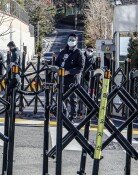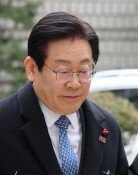Is Ahn the right person for reforms?
Former Supreme Court Judge and Prime Minister nominee Ahn Dae-hee was found to have earned 1.6 billion won (about 1.56 million U.S. dollars) by working as a lawyer for five months between July and December last year. His monthly income is approximately 340 million won (about 312,000 dollars). His income this year was not known and not included in the calculation. Ahn served for six years as a high-ranking official in the Prosecutors Office such as the Central Investigation Division and the Supreme Prosecutors Office. Although he is a great lawyer with brilliant career, the amount of money he makes is unthinkable for ordinary people. Even lawyers may feel a sense of deprivation.
Ahn opened a law office last July, exactly one year after his retirement as a Supreme Court judge in July 2012. In accordance with the revised Attorney-At-Law Act, a law that was enacted to prohibit the common practice of according privileges in court to retired judges and prosecutors and became effective in 2011, judges and prosecutors are not allowed to accept legal cases in their last place of work for one year. Thus, it has become a common practice these days that retired Supreme Court judges work as a law school professor for one year and then open a private practice as a lawyer. In reality, the law only postpones the privileges a year, raising questions about its effectiveness.
President Park Geun-hye announced at her address to the nation last week that she would eradiate the collusion between private and public sectors and gwanfia (officials plus mafia) with the determination of reforming the nation. The public-private collusion originates in the practice of granting privileges to retired judges and prosecutors in the field of law. If Ahn could earn that money because he was a former Supreme Court judge, it is questionable if he is the right person to lead reforms of rooting out the public-private collusion and gwanfia.
Ahn explained that he did not accept criminal cases or Supreme Court appealing cases unless those were from acquaintances and difficult to refuse. He is specialized in tax evasion. He worked as a prosecutor in the Central Investigation Division of the Prosecutors Office and published a book titled Tax Criminal Law in 2005. Although it is difficult to find out if he benefited from the privileges of his former post because details of the legal cases are not disclosed, many ordinary people will feel a sense of compatibility. Things will have to be thoroughly verified at the parliamentary hearing.
During the previous administration, Jeong Dong-ki, then-nominee for the director of the Board of Audit and Inspection, failed to get parliamentary approval because of the criticism over the fact that he earned more than 100 million won (about 97,500 dollars) a month when he worked for a law firm. Ahns income as a lawyer was even higher. When he was asked of the privileges retired judges get for their former posts at the parliamentary hearing for the approval of Supreme Court judge in 2006, he answered that lawyers should think about their proper compensations. Apart from the controversies over the privileges for retired judges, Ahn should first think about if the compensation he received as lawyer was proper.







